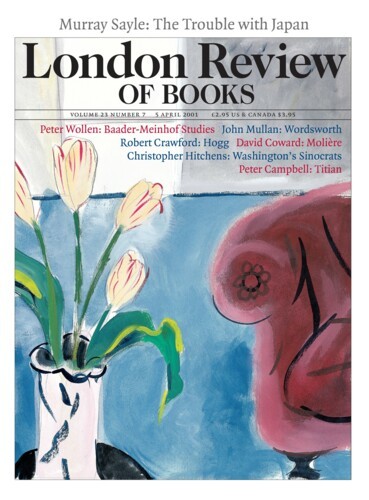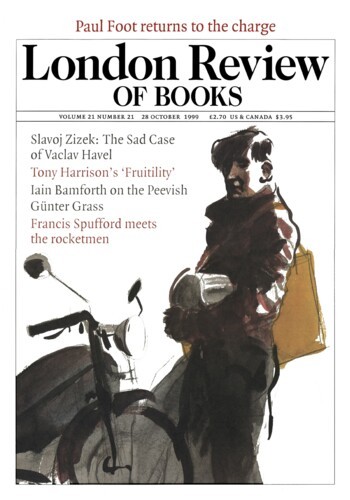Denis Diderot, the hero of Malcolm Bradbury’s new novel, has one niche in the English language with ‘esprit de l’escalier’, his only entry in the Oxford Dictionary of Quotations: ‘An untranslatable phrase, the meaning of which is that one only thinks on one’s way downstairs of the smart retort one might have made in the drawing room’. It is given, here and in the OED, as coming from Paradoxe sur le comédien, Diderot’s account of why the greatest actor must be a person of zero sensibility, ‘un spectateur froid et tranquille’ of human nature. The phrase seems untranslatable because it belongs so clearly to its milieu: we imagine the Philosophes in their salons, not afraid of any ideas, valuing only each other’s intellect, fencing with words. And we think of the mortifications involved in belonging to this milieu. An occupational hazard of Enlightenment man, who lives for clever talk, has been fixed in a phrase as a universal experience. If you want to live by your conversational wits, you are condemned to keep realising how clever you failed to be.‘
Denis Diderot, the hero of Malcolm Bradbury’s new novel, has one niche in the English language with ‘esprit de l’escalier’, his only entry in the Oxford Dictionary of...





